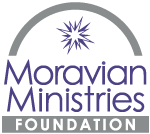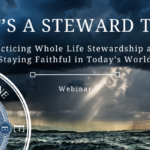Smart investors know earning money in the market is a long-term proposition. We make the best decisions we can for the long term and try not to overreact to the daily ups and downs. We don’t usually move our money unless there’s a good reason.
So, what are the really good reasons our investments as individuals, as congregations, and agencies should be through the Moravian Common Fund instead of secular managers?
Your fees stay in the church.
You’re going to pay a fee for investment management services, wherever you invest. But when you invest in the Moravian Common Fund, those fees have a second life that helps your fellow Moravians. Those investment fees cover the credit card processing costs for all gifts through the Moravian Giving Portal. They cover the cost of the infrastructure to offer and maintain all MMFA services. They cover Stewardship Services for congregations and agencies that need it. They cover the administration costs of our grant-making field of interest funds, so Moravian ministry gets the financial support necessary to do God’s work. Do you know what gets funded by the investment fees you pay to a secular manager?
The Common Fund is competitive.
In terms of performance, diversity, options, risks, and fees, you will find that investing through the Common Fund is competitive. When we invest collectively, we often qualify for choices that are not available to smaller individual churches or agencies. Together, our pooled investments make us a larger, more important investor than we would be individually.
It’s our Moravian and Christian heritage.
Moravians lived communally even before we came to North America. We put our resources together into the community and took back only what we needed to live productively for Christ and our brothers and sisters. Today, Common Fund investors retain ownership of their assets, while benefiting from investment options and treatment normally reserved for larger investors. Our pooled investments bring economies of scale and lower total costs.
Acts 4:32 – 34 says: “Now all who believed were of one heart and soul, and no one said any possession was his or her own, but they had everything in common . . . There was not a needy person among them.”











